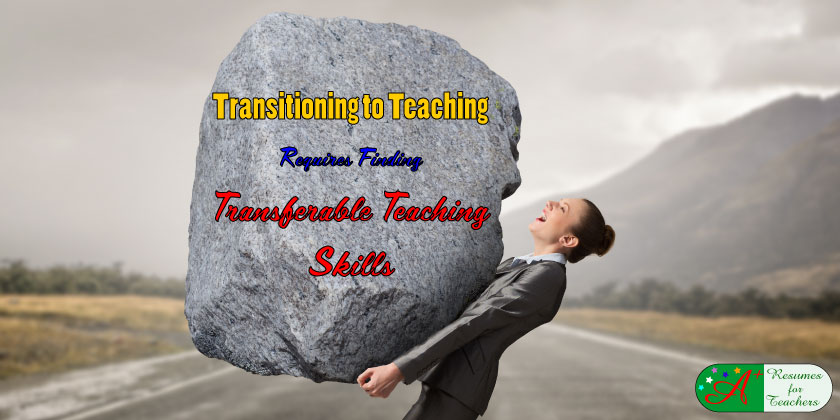Transitioning to teaching requires finding transferable teaching skills that are relevant to education. Make this a priority step in your career change.
Let’s discover how to uncover your skills that are transferable to teaching.
When applying for a job in an entirely different field than what you are trained in, it is of the utmost importance that you analyze your teaching skills and detect the ones that would make you a good instructor.
For example, if you wish to transition to teaching after a military career, you must identify your relevant teaching skills.
Some of the desired skills include communication, interpersonal, organizational, time management, critical thinking, and problem-solving. Look at your current job’s day-to-day responsibilities and determine how many of the above skills you use.
Convey Your Relevant Teaching Skills in Your Resume and Application Letter
To be an incredible teacher, you must possess other traits, including creativity, enthusiasm, motivation, cooperation, compassion, patience, and a goal-driven nature. Assess how many of these attributes are related to your teaching, and determine which should be strengthened.
When switching careers, highlight how you effectively used these teaching-specific skills in your resume and cover letter.
In addition to the soft skills and personal traits mentioned above, teachers must possess a hard skill set. This set includes lesson plan development, needs assessment, student motivation, performance evaluation, parent-teacher communication, learning style accommodation, individualized tutoring, hands-on instruction, and many others.
If you have never been involved in education or instruction before, you may find that these elements are outside your realm of expertise. However, you can find events and skills that are relatable.
For example, though you may not be experienced when motivating children, you have had the opportunity to motivate colleagues daily within your work environment. Think of examples of how you encourage co-workers and the result of your actions.
Furthermore, writing lesson plans may seem daunting, but do not worry. You are an expert at your office’s writing procedures. You know how to lay out a plan step-by-step so anyone can follow along and understand.
If employees have questions, they know they can ask you for advice and help. Think of them as your students. You can guide and mentor them and ensure they perform at the top of their game.
If you are currently in a supervisory position of any kind, then chances are you have had to conduct performance reviews. You assess each employee as an individual, determine their strengths and weaknesses, discover set goals, and help them reach their full potential. The same goes for the future students you wish to teach.
By treating students as individuals, conducting regular performance evaluations, analyzing their unique learning styles, and accommodating them to overcome obstacles and strengthen gifts, you will ensure an optimal learning environment for all.
Think of other transferable skills that can draw a link between your current career and your desired position as an educator. Make sure that you communicate the correlation between the jobs to prospective employers. Transitioning into teaching can be easier if you effectively communicate this in your resume, application cover letter, and job interview. Don’t underestimate the importance of this process.
Always mention your technology skills. Understanding tech tools in education is critical to moving your educational career forward. Here are ten tech tools you can use to differentiate the instruction.
Have you used any of them? I am sure you have.
Though you may have to dig a bit to find specific examples where you use teaching techniques and skills, the talent for educating is in you!
Need help? I work with many career changers yearly to land their dream teaching job.


